




 |
   |
 |
 |
Go Live (2010, 78.05) ***½/T½ |
|
| Stars in Still Water Hengilás Icicle Sleeves Kolniður Tornado Sinking Friendships Saint Naive Go Do |
Boy Lilikoi Animal Arithmetic New Piano Song Around Us Sticks and Stones Grow Till Tall |
|
Current availability:
Mellotron used:
Jón þór "Jónsi" Birgisson is, of course, vocalist and guitarist with Sigur Rós, Iceland's biggest musical export since Björk and (some of us might contentiously, er, contend) a rather more listenable one, to boot. He released Go in early 2010, toured the album and stuck out a live document of the tour, Go Live, all in the same year. Unsurprisingly, it sounds a lot like Sigur, although some techno-ish elements creep in here and there, not least what sounds like laptop glitch on Around Us. Jónsi's at his best, though, when doing that 'transcendent' thing that his band do so well, the best examples here probably being Kolniður, Saint Naive and parts of two or three other tracks, although acoustic opener Stars In Still Water makes a nice change from the usual.
Alex Somers plays Sigur's new M4000, with string section on Tornado, Go Do, Around Us and Sticks And Stones. What, they needed twenty-four sounds for this? In fairness, as I know the band wrestled for ages over their choice of tapes for their machine, we may actually be hearing two or three minor variations on a theme. Or we may not. Either way, Sigur fans are bound to like most, if not all of this release, although I wouldn't really recommend it on the Mellotron front.
See: Sigur Rós
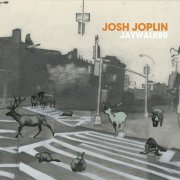 |
Jaywalker (2005, 42.10) **½/TT½ |
|
| Mister New Years Day Pilgrim's Progress One Becomes Two Jaywalkers of the World A Hard Year The World on a Shoestring To All My Friends Arms to Hold Me |
Empire State Mortimer's Ghost Stay |
|
Current availability:
Mellotron/Chamberlin used:
Josh Joplin's spent most of his thirty-year career in various groupings, including the Josh Joplin Band/Group and Among the Oak & Ash with Garrison Starr. 2005's Jaywalker is his first solo album, a folk-inspired effort that sails rather too close to all those singer-songwriters whose songs end up on shitty TV shows for comfort. Any better tracks? Upbeat opener Mister New Years Day and A Hard Year, maybe.
Matt Henry Cunitz plays Mellotron and Chamberlin, with what sounds like Mellotron cellos on Jaywalkers Of The World and A Hard Year, (Chamby?) strings on Empire State, cellos and (Chamby?) flutes on Mortimer's Ghost and cellos and strings on closer Stay. Are all those cellos Mellotronic, as against Chamberlinic? Hard to say. Anyway, probably better tape-replay work than actual music.
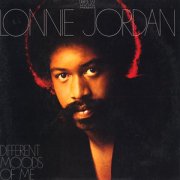 |
Different Moods of Me (1978, 36.45) ***/TT½Grey Rainy DaysJungle Dancin' Best Way I Can Discoland Junkie to My Music Nasty He Used to Be a Friend of Mine Different Moods of Me |
Current availability:
Chamberlin used:
Multi-instrumentalist Leroy "Lonnie" Jordan is not only a founding member of War (originally with ex-Animal Eric Burdon), but the only original member still playing with their current lineup. 1978's Different Moods of Me was his first solo album, featuring an impressive combination of styles, from the expected soul/funk of much of the album, through a couple of Santana-esque tracks, to the slightly unusual epic balladry of the closing title track (replete with lashings of Hammond). Discoland is probably the oddest thing here, though, with a huge 'Sesame Street'-style kids' chorus, albeit not in standard 'cheeso' mode, thankfully.
Jordan plays Chamberlin himself, with strings on opener Grey Rainy Days, strings and flutes on Best Way I Can and He Used To Be A Friend Of Mine and flutes on Discoland, mostly in 'orchestral replacement mode', to be honest.
See: Samples etc. | War
 |
Rats (1994, 44.26) ***/T½ |
|
| Damaged Slave Pissin' Down High Road Easy Sun's Gonna Rise Head Ugly I'm Not |
Honey Wish Breakin' Give |
|
Current availability:
Mellotron used:
Sarah "Sass" Jordan, although born in the UK, grew up in Canada, later moving to the States as her career stepped up a gear. 1994's Rats is her third album, fitting firmly into the 'raunch'n'roll' hard rock sub-set, in other words, a bit like Aerosmith in '70s mode. Guest players including Stevie Salas and Tom Petersson of Cheap Trick, which probably gives you more idea of the album's sound. It's not... bad, it's just not that exciting, either and either the mix is truly appalling, or the pressing's awful, with track volumes starting high, then plummeting as soon as the rest of the band join the guitar. Huh? Although it's a bit of a weepy ballad, Breakin' might just be the best track, avoiding the rock'n'roll clichés of the rest of the album.
Mellotron from Rei Atsumi (ex-Vow Wow), with strings on Sun's Gonna Rise (a hit in the States, I believe) and uncredited flutes and strings on Breakin', alongside real strings, but that's yer lot. So; run-of-the-mill rockin' stuff, with a decent, vaguely Janis-like singer and a little Mellotron. Don't go paying too much, now...
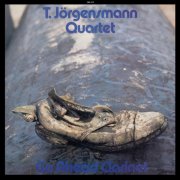 |
Go Ahead Clarinet (1978, 38.06) ***/½Porc Binaire RotiKissy Stays a Dream I Remember Out November December 4th |
Current availability:
Mellotron used:
Clarinettist Theo Jörgensmann released his first quartet record in 1976, 1978's Go Ahead Clarinet seemingly their third. It's an album of sparse, laid-back jazz, clarinet and double bass to the fore; although guitarist John Thomas gets a 'featuring...' credit on the rear sleeve, he actually contributes surprisingly little, only really audible on two of the five tracks.
Uli P. Lask plays Mellotron, if barely, with a brief, distant flute part opening closer December 4th. Jazzer? You'll love this. Someone looking for heavy-duty Mellotron use? Don't bother.
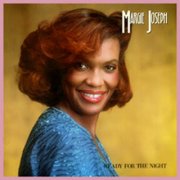 |
Ready for the Night (1984, 41.36) **/½Ready for the NightMidnight Lover Take Me Away Tonight Big Strong Man Tell Me Is it Gonna Be Me & You I Wants Mo' Stuff Adonai |
Current availability:
Mellotron used:
Margie Joseph's career was already in decline when Narada Michael Walden produced her last major-label release, 1984's Ready for the Night. It's a typical r'n'b album of the period, like a budget Michael Jackson, all drum machines, up-to-the-minute synths and 'contemporary' scratching (sexist nonsense Big Strong Man); very much a producer's album, in other words, almost every song at least a minute longer than necessary.
Preston Glass plays Mellotron on closer Adonai, with distant choirs that, had this been recorded a year or two later, would almost certainly have been played on an Emulator. It seems pointless to criticise this for being what it is; soul collectors cream themselves over stuff like this, despite its outrageously dated '80s-ness. However, you quite certainly don't need to hear it, either for its soul-by-numbers songs or its minimal Mellotron; you might think this is worth hearing as a rare example of mid-'80s Mellotron use, but you'd be wrong.
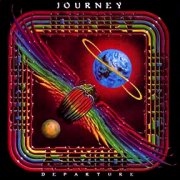 |
Departure (1980, 38.02) **½/½ |
|
| Any Way You Want it Walks Like a Lady Someday Soon People and Places Precious Time Where Were You I'm Cryin' Line of Fire |
Departure Good Morning Girl Stay Awhile Homemade Love |
|
Current availability:
Mellotron used:
Journey's sixth album, Departure, was their third since their early jazz-rock phase, although we're not exactly talking Mahavishnu territory, even then. 1978's Infinity was their first breakthrough AOR album with new singer Steve Perry, catapulting the band into the upper echelons of the US charts, even if other territories were slower to succumb to their charms. Basically, you either like this stuff or you don't; it's utterly ludicrous, but, despite its cheesiness, I find it difficult to hate Journey unreservedly, although their awful ballads push me perilously close... The more listenable moments on the album are easily its longest track, People And Places and opener and major hit Any Way You Want It (containing NO double-entendres, amazingly), with several moments of pure cheese that are best skipped over.
Gregg Rolie, on his last album with the band before being replaced by ex-Babys man Jonathan Cain, only used the hired-in Mellotron on one track, with background strings on Any Way You Want It. According to the liner notes on the Time³ box set, the instrument he used didn't work too well (no maintenance, as usual), but co-producer Geoff Workman got some useable stuff out of it, doubling it with Hammond, not to mention their usual massed backing vocals. Real strings on the last two tracks, so with one minor Mellotron track, don't even think about buying this for that reason. In fact, don't even think about buying this unless you're big on Radio Rock, or whatever you want to call it. Listen to the vastly superior New England instead.
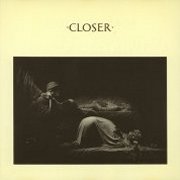 |
Closer (1980, 44.28) ****/TAtrocity ExhibitionIsolation Passover Colony A Means to an End Heart and Soul Twenty Four Hours The Eternal Decades |
Current availability:
Mellotron used:
Joy Division first appeared at the height of punk in 1977 under the rather non-PC name of Warsaw, complete with Hitler Youth-inspired cover art. Tell you what, chaps, Nazi chic has never been cool and no, I don't care what Lemmy says... Anyway, they soon dropped the more overtly fascistic trappings, although their new name was inspired by the officially-sanctioned corps of prostitutes used by the SS, so no change really... Many fans hold Joy Division up as 'some of the most depressing music ever', or somesuch, but with a few exceptions I feel this is mostly wishful thinking. However, their secret weapon was gravel-voiced vocalist Ian Curtis, a seriously depressed young man who sadly took his own life not long after the release of Closer. Even on the more upbeat songs, Curtis' vocals certainly produce feelings of despair, however, as do his lyrics. Their best-known song (and only real hit) Love Will Tear Us Apart, is definitely one of the most depressing chart singles ever, major key or no.
Closer was the band's second album and last as an extant unit; its weird, claustrophobic sound doesn't make for easy listening, Peter Hook's 'lead bass' and their unconventional drum patterns triggering the whole 'post-punk' movement. The cover is no less stark than the monochrome oddness of its predecessor, Unknown Pleasures (****), very recognisably in the 'house style' of their label, Factory, being a photo of the Appiani family tomb in the Cimitero Monumentale di Staglieno in Genoa (thanks, Mike). The album has the occasional keyboard part dotted about (probably Bernard Sumner, a.k.a. Albrecht), mostly string synth, but, strangely, someone must've brought in a Mellotron at some point, as there's a clearly audible string line during album closer (sorry) Decades, under the string synth melody. The second time round the melody, it's all Mellotron, just in case there are any doubters out there.
See: New Order
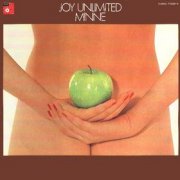 |
Minne (1974, 44.04) ***/T½ |
|
| Origo Minne Wunder Kan Din Guete/Monogam-Polygam Der Din Wip Alrerst Betrouc Cinctura Virginae Swer Gieht, Daz Minne Sunde Si/Abruptio Venus Almin Fröide Thermae |
Roter Mund Wie Du Dich Swachest Bacchanal Flos Lividus I Flos Lividus II |
|
Current availability:
Mellotron used:
Minne was Joy Unlimited's fourth and last album, apparently their most laid-back effort, containing a mixture of styles, from the folkish (Minne Wunder Kan Din Guete/Monogam-Polygam, Der Din Wip Alrerst Betrouc) to brass-driven rock (Cinctura Virginae, Bacchanal) and even a track in a Gryphonesque medieval vein (Almin Fröide). Its diversity is probably its downfall, sad though it makes me to say so; the album lacks focus, its disparate influences refusing to gel sufficiently to create a cohesive whole, sounding one minute like Wind and the next, Van der Graaf Generator.
Roland Heck's Mellotron work only crops up on two tracks, with nicely up-front strings on opener Origo and closer Flos Lividus II, bookending the album in a Mellotronic kind of way. This isn't a bad album per se, but its irritating habit of lurching from style to style makes it a slightly fractured listen, probably due to the band's failure to integrate their influences. Two nice Mellotron tracks, though.
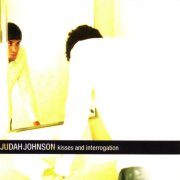 |
Kisses & Interrogation (2003, 58.37) **/T |
|
| Look at My Hands Vegas Revisited Consolation Kisses and Interrogation (Version B) Wolf Pics I Signs Subliminal The Great Humanitarian The Ruse |
I'm in a Dangerous Place In the Can Made for Greatness Wolf Pics II Kisses and Interrogation (Version A) Theme From the Thinker We Stand Still |
|
Current availability:
Mellotron used:
Detroit's Judah Johnson play an exceptionally dull form of post-rock-informed, sparse American indie on their debut, 2003's Kisses & Interrogation, not helped by the album's considerable overlength. Any better tracks? The more upbeat The Great Humanitarian isn't too bad, but overall, this is as dull as ditchwater.
Dave Shettler plays Mellotron, with strings on The Ruse, combined with the credited string quartet, complete with a wobbly pitchbend, although the strings on Signs Subliminal and others appear to be the quartet. Seriously, don't bother.
 |
Scorch (1970, 40.34) ***/TT½ |
|
| John Brown's Body Rockin' Chair Beer Drinking Woman Medley: 49 Fingers Purple God Bossa Jump Cry-de-Cry Run for Your Life |
Cully Mississippi Turnpike Medley: Primrose Lady Scorch Private Holiday Camp |
|
Current availability:
Mellotron used:
Judas Jump were apparently considered something of a supergroup at the time, mainman/guitarist/keyboard player Andrew/Andy Bown and drummer Henry Spinetti being ex-The Herd (with Peter Frampton), while other members had played with various minor British '60s pop outfits, including Amen Corner. Their sound was that very of-its-time mixture of bar-room boogie, hard rock and prog (!), that hasn't really dated very well. Scorch was their sole album, actually not at all bad, though their attempts at barrelhouse stuff (Beer Drinking Woman) or countryish material (Mississippi Turnpike) would probably, with hindsight, have been better left on the cutting-room floor, while the less said about the deeply parochial Private Holiday Camp the better.
Bown plays plenty of Mellotron (presumably MkII) on the album, to the point where sometimes you wonder if it's slightly overdone, although much of it's obviously an attempt to replicate string and brass sections on the cheap, rather than using it for its own sound. Strings on John Brown's Body, then brass (alongside real sax), plus more strings on Rockin' Chair, with more of the same across the other highlighted tracks, the most minor use being about three seconds of faint strings at the end of the first part of the second medley, Primrose Lady.
For some strange reason, the US issue appeared in 1972, after the band has split up, sensibly removing Private Holiday Camp. Anyway, a reasonable enough album, if rather unexciting, but with a fair bit of the ol' Mellotron, though more for proto-prog completists than the general listening public, I suspect. Oh, and if you weren't aware (assuming you care), Bown went on to become Status Quo's onstage keyboard player, before finally being accepted as a full band member many years later, well after they'd gone down the pan.
See: Andrew Bown
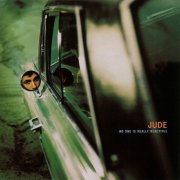 |
No One is Really Beautiful (1998, 54.28) ***/TT |
|
| You Mama You Charlie Says I'm Sorry Now Rick James Battered Broken I Do Prophet Out of L.A. |
I Know She Gets the Feeling George Brad and Suzy The Asshole Song |
|
Current availability:
Chamberlin used:
Michael Jude Christodal released a clutch of albums between the late '90s and the late 2000s, 1998's No One is Really Beautiful being the second. Essentially, it's a confessional singer-songwriter record, probably at its best on the chugging Charlie Says, Rick James and George, while closer The Asshole Song is probably the gentlest song you'll ever hear about being a complete pig.
Patrick Warren does his usual Chamberlin thing (albeit uncredited), adding those weird solo voices (high male? Low female?) to Charlie Says, a nifty little flute part and chordal strings on Battered Broken and cellos and flutes on Prophet, other string parts being the real string section used on the record. Given his approach, it seems Jude mostly works in the TV business these days. He isn't about to become my new favourite artist, but I've heard a lot worse in his field.
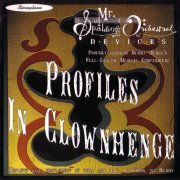 |
Profiles in Clownhenge (1998, 52.33) ***½/T |
|
| Prelude Ballad of Bud and Dan The Ugly American Everybody Loves Bob The Nemesis Waltz Earl's Breakdown Smaller Than Life The King of Reseda |
Horrible Guy Parade of the Damned Send in the Clowns A Perfect Day Just Another Girl Vision X-Mas in Clownhenge |
|
Current availability:
Mellotron (Chamberlin?) used:
Buddy Judge is one of the two less well-known members of The Grays, alongside Jason Falkner and the inimitable Jon Brion. His 1998 solo album, Profiles in Clownhenge (or, properly, Mr Spalding's Orchestral Devices Proudly Perform Buddy Judge's Full-Length Musical Compendium "Profiles in Clownhenge"), is a pretty odd effort all round, Judge playing tuba on most (if not all) tracks, making for an, er, unusual lead instrument. Unsurprisingly, an oom-pah sound pervades the record, sounding like a slightly demented Victorian circus, fittingly, since the album's concept seems to be based around the idea of the proverbial Mr Spalding's steam-powered mechanical animal orchestra and its (and his) eventual demise. Weird? Yup, but far from unappealing, containing songs of the quality of Horrible Guy, A Perfect Day and Vision, although the cover of Send In The Clowns and various snippets of well-known tunes (including Christmas ones on X-Mas In Clownhenge) sometimes sit uncomfortably with Judge's own material.
I can't find any reference to anyone playing Mellotron (or Chamberlin) on the album, but that has to be tape-replay flutes and cellos on A Perfect Day (alongside what sounds like real strings), with possible other bits towards the end of the album. So; if a powerpop oom-pah (or possibly oom-pah powerpop) album sounds like it might be your bag, you've just discovered the leader in a genre of one. If you just like the idea of a quirky, intelligent pop album, you also can't go too far wrong, although its (probable) tape-replay use is too minimal to be worth it on that front alone.
See: The Grays
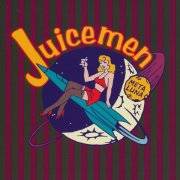 |
Meta Luna (1994, 38.07/47.53) ***/½ (T) |
|
| Before the Wheel Nobody Told Her Broken Tooth Mission Bed Sleep Child's Fear The Voyeur Dim Bulb Sway Downtime |
Tuesday Evening Dandelion [Spotify bonus tracks: Ichabod Speedwagon Broken Tooth (basic track) Vickles the Clown The Voyeur (basic track) Against the World] |
|
Current availability:
Mellotron used:
New York staters Juicemen's second and last album, 1994's Meta Luna, is a typical alt.rock release of its era (can I say that yet about the '90s?), possibly at its best on the suitably jagged Broken Tooth, the six-minute Sleep and Dim Bulb Sway. The worst thing about this album? George Faulkner's awful, whiny vocals, straight out of Alt.Rock Central. Why did anyone think it was a good idea to give this man a mic?
Producer Sean Slade plays (Fort Apache studio?) Mellotron on Sleep, with a handful of string chords halfway through, plus strings and cellos on a bonus track on the expanded Spotify version, Against The World. What else can I say about such a generic record? It does the same thing as loads of other bands, albeit with a little Mellotron.
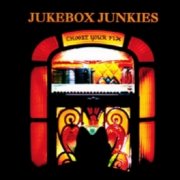 |
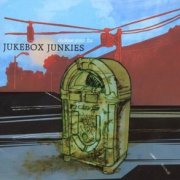 |
Choose Your Fix (2001, 45.39) ***/½ |
|
| Sentimental Tattoo Over & Over A Wish Reason to Believe Undertow Wrecking Ball Uptown Train Seven on the Line |
Nothing Gets Me Down One More Song Anything |
||
Current availability:
Chamberlin used:
The Jukebox Junkies seems to be a popular name for covers bands in both the UK and US, perhaps unsurprisingly, so tracking down information on a (presumably) long-gone outfit isn't so easy. If Discogs is to be believed (far from a given), they only released the one album, 2001's Choose Your Fix, initially on their own label, with a 2004 reissue on Trampoline. It sits at the indie end of the powerpop/Americana divide, at its best on opener Sentimental Tattoo, Wrecking Ball's Americana and Seven On The Line's powerpop.
Rami Jaffee plays Chamberlin, with distant strings on A Wish and slightly more upfront ones on One More Song. Mr. Jaffee's credits are often highly suspect, but, given when this was recorded, you'd like to think these are genuine; after all, it's not his fault that his contributions were pushed so low in the mix.
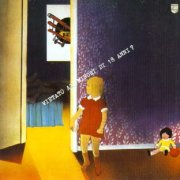 |
Vietato ai Minori di 18 Anni? (1973, 44.00) ****/TT½SpecchioCome Vorrei Essere Uguale a te Il Ritorno del Signor K Via Larga Gil Vangelo? 40 Gradi No! |
Current availability:
Mellotron used:
Jumbo's third (and last) album, 1973's Vietato ai Minori di 18 Anni? is, in many ways, a typically Italian progressive album of the time, experimental sections rubbing shoulders with more traditional melodic parts, covering a gamut of styles over its course. Hard to pick out highlights, but opener Specchio and Il Ritorno Del Signor K are particularly good.
Aldo Gargano plays Mellotron on two tracks: Gil is probably the album's most experimental piece, including vaguely dissonant Mellotron strings fading in and out of the mix, 40 Gradi is slightly more straightforward, with similar Mellotron use coming in fairly late in the song, while closer No! has even more strings, possibly doubled with cellos. Vietato... is a good album, if not actually a classic, although its Mellotron use is relatively limited. Buy anyway.
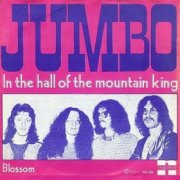 |
7" (1974) ***/T½ In the Hall of the Mountain King Blossom |
Current availability:
Mellotron used:
Jumbo (Dutch version) were a proggish pop group from Rotterdam (previously The Eddysons), who released but four singles in their lifetime. The last of these, '74's In The Hall Of The Mountain King, is, of course, their take on Grieg's classic, throwing prog, MOR and jazz into the melting-pot, while the flip, Blossom, utilises the same elements on their own composition to greater effect, sounding slightly like Focus in the process.
I presume it's keyboard player Martin Agterberg (Shoes, Wally Tax, Barbara Nielsen) who adds the distant Mellotron string line to the 'A' under the all-pervasive synth and the more upfront strings on the flip. I don't believe this has been anthologised, but downloads may be out there, if you're absolutely determined. Many thanks to Matthijs for this one.
See: The Eddysons
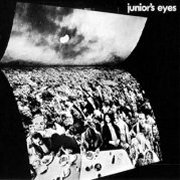 |
Battersea Power Station (1969, 38.20/78.20) ***/T |
||
| Total War Circus Days Imagination My Ship Miss Lizzie So Embarrassed Freak in Playtime |
I'm Drowning White Light By the Tree [CD adds: Mr. Golden Trumpet Player Black Snake Woman Love Star Child |
Sink or Swim Circus Days (single version) White Light (demo) By the Tree (demo) Imagination (demo) Playtime (demo) Subway (Smokey Pokey World) (The Tickle) Good Evening (The Tickle)] |
|
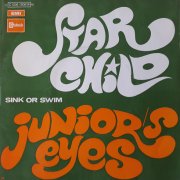 |
7" ( 1969) ***/T Star Child Sink or Swim |
Current availability:
Mellotrons used:
Junior's Eyes' chief claim to fame seems to be that most of the band played on David Bowie's first 'proper' album, Space Oddity, as did a session keyboard player who guested on their lone long-player, Rick Wakeman. A rather lesser one is that they have to be the inspiration behind the track of the same name from Ozzy Osbourne's last album with Black Sabbath, 1978's Never Say Die. Did the two bands share a bill in 1969? Perfectly possible, although they were from different areas of the country. I've seen Battersea Power Station described as 'underrated', but I can't say I'm convinced, I'm afraid. It's not a bad album, but with far too many tracks like the meandering By The Tree, or the sub-Stray Playtime (while actually predating them), it has difficulty justifying its tag as 'a lost psych classic' or somesuch. Side one's seven tracks form one linked sequence of songs, some of which work better than others, Circus Days probably being the highlight, with the first few holding together fairly well, although they drift off a little by the end of the side.
Mellotron on one track, Rick adding MkII strings to My Ship, although it's not the most essential use ever; certainly not a patch on the part he added to Space Oddity itself, but then, Tony Visconti wasn't producing here. However, although I'm not sure about recording dates, this could actually be Rick's very first recorded Mellotron track, making it of historical importance, at least. Recent reissues adds loads of bonus tracks, including both sides of all their three singles, including Star Child, complete with vague Mellotron string part, possibly played by Mr. Wakeman again.
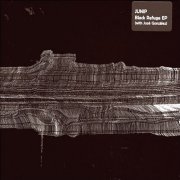 |
Black Refuge EP (2005, 19.21) **½/TBlack RefugeTurn to the Assassin Official Chugga-Chugga The Ghost of Tom Joad |
Current availability:
Mellotron used:
Junip are a Swedish indie band, which is no better than being an indie band from anywhere else, to be honest. Their first release, 2005's Black Refuge EP, is an entirely average effort in the genre, its best track being their take on Springsteen's The Ghost Of Tom Joad, unsurprisingly, although the six-minute Official summons up a certain atmosphere, the rest of the material having more in common with any number of landfill indie outfits, names long-forgotten, if ever known.
Tobias Winterkorn plays Svenska Grammofon Studion's M400 on Official, with overdubbed choir and string parts, to excellent effect, I have to say. Powerful, well up in the mix. For some reason, I used to think this was sampled.
See: Samples etc.
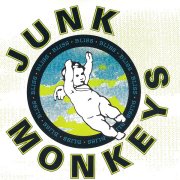 |
Bliss (1992, 44.55) ***/T |
|
| I Got Fear All in a Day Idle Up Satisfied Rag Frayed And it Caved in Teacup Song |
Bliss Day Away Edison Brighter Days Shine |
|
Current availability:
Mellotron used:
1992's Bliss was Michigan's Junk Monkeys' fourth and final album, sitting somewhere in between hard rock and pop/punk, making it surprising that they were signed to Metal Blade. Although the album features no actual duffers, nor are there that many particularly high points, the whole probably at its best on Satisfied, the blistering Teacup Song and Day Away.
Dan Hess' Mellotron credit only comes through at the very end of the album, a polyphonic cello part entering the fray halfway through gentle closer Shine. Decent enough, but there's a reason that a band with several albums under their belt are little-remembered twenty-five years later.
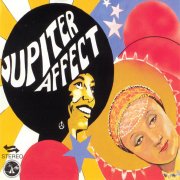 |
The Jupiter Affect (1998, 19.35) ***½/TTBig Monster ChainsAngela Davis Hair #17 Dream Velocity Throwing in the Towel |
Current availability:
Mellotron used:
The Jupiter Affect were almost certainly named for John Gribbin's 1974 somewhat scare-mongering volume of the same name, which predicted major earthquakes in 1982. You know, the Big 82? No? No. Thankfully, the band are a far better proposition than the book, consisting of members of various minor 'paisley underground' bands of the '80s, chiefly The Three O'Clock's Michael Quercio. Their debut release, '98's eponymous EP, is a prime example of the rock end of the psych spectrum, Jason Shapiro and Dan Epstein's twin guitars adding the oomph to the proceedings. Top tracks? As you'd hope for from such a release, opener Big Monster Chains might just take the crown, although the slower, yet even more powerful #17 Dream could just pip it at the post.
Our old pal Phil Parlapiano adds Mellotron to a couple of tracks, with cello and string parts on Angela Davis Hair and strings and flutes on #17 Dream, very clearly real, even if we didn't know he was an owner. The band recorded a couple of albums before (presumably) splitting, about which I can't comment, but this EP is not only a fine release, but also features some decent Mellotron work. Recommended.
 |
Rehearsals for Departure (1999, 36.39) ***½/T |
|
| Ohio Tragedy Curbside Honey Baby Eyes for Windows Letters & Drawings Love the Same Saturday |
Tornado Rehearsals for Departure |
|
Current availability:
Mellotron used:
Damien Jurado is a Posies associate who would, in a fair and reasonable world, be a household name. However, we live in an unfair and unreasonable world, where shysters like, oh God, I can't even remember their horrible names (although Daniel Powter springs to mind), become famous and sell loads of records, while genuine artists struggle. You could say, "But isn't that always the way?", but genuine talent sometimes shines through. Maybe that was in the past. Anyway, Rehearsals for Departure is Jurado's second album, full of wonderfully mournful vignettes like opener Ohio, Eyes For Windows or the title track; even on the rare occasions when it picks up the pace, it still sounds sad.
The Posies' Ken Stringfellow plays Mellotron (presumably his own band's rare MkV), with flutes on Letters & Drawings and a few notes on Saturday, although the strings on Love The Same are real. So; a worthwhile effort from someone struggling for recognition. You're unlikely to purchase this for its Mellotron content, but do him and yourself a favour and buy this album.
See: Samples etc. | Posies
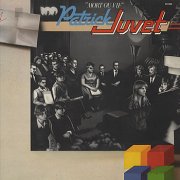 |
Mort ou Vif (1976, 32.19) **/0Les Lunettes NoiresPapa s'Pique et Maman s'Shoote Faut Pas Rever Mort ou Vif L'Enfant Aux Cheveux Blancs Les Idees Molles Le Chanteur du Grande Cafe Le Dernier Rock and Roll |
Current availability:
Mellotron used:
After a successful stint as a model in Germany in his late teens, the classically-trained Patrick Juvet moved to Paris, quickly establishing himself as a mainstream French pop star. For several years, he worked with an up-and-coming musician, composer Maurice Jarre's son Jean Michel, continuing the association after Jarre's rise to solo fame in '76. Juvet released his fifth album the same year, Mort ou Vif, recorded in LA; as you might expect, it's a mainstream mid-'70s pop/rock album, with a couple of warning signs that Juvet was about to move into disco, big time.
Juvet allegedly plays Mellotron himself, although there's nothing obvious to be heard, making me wonder why he bothered crediting it. Although some of this album's tracks are available on compilations, the original record has never been issued on CD; a shame for M. Juvet's fans, less so for the rest of us. Anyway, with no apparent Mellotron, you really have no reason to hear this, unless the idea of unheard mainstream '70s pop appeals.
See: Jean Michel Jarre